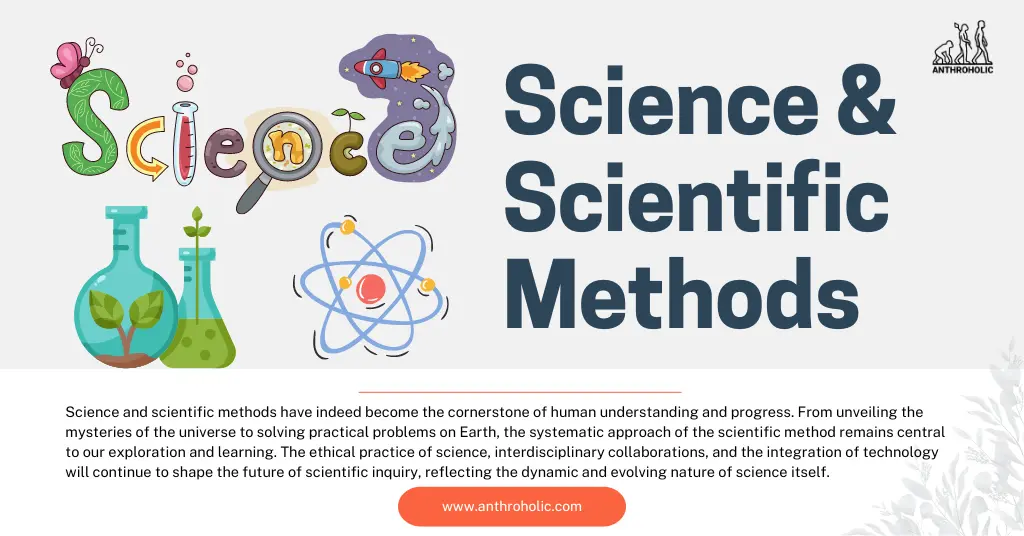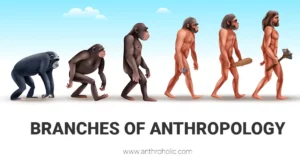AI Answer Evaluation Platform Live Now. Try Free Answer Evaluation Now
Science and Scientific Methods
Science can be defined as the systematic study of the physical and natural world through observation and experiment. The methodology employed by science to acquire knowledge is often referred to as the scientific method. This method allows scientists to minimize biases in their experiments and analyses, helping to produce accurate and reliable results. The application of scientific methods in different fields has resulted in extraordinary technological and intellectual progress throughout human history.

Understanding Science
Science is built on a foundation of critical thinking, objective observation, and the quest for discovering truth. It is both a body of knowledge and a process involving methodical approaches to explore the world. Broadly, science is divided into three categories:
- Natural Science: The study of natural phenomena, including biological life and physical objects.
- Social Science: The study of human behavior and societal structures.
- Formal Science: The study of formal systems, such as logic, mathematics, and theoretical computer science.
The Scientific Method: An Overview
The scientific method is a rigorous process that forms the backbone of scientific inquiry. It comprises systematic observation, measurement, experimentation, formulation, testing, and modification of hypotheses. The basic steps of the scientific method are:
- Observation
- Question
- Hypothesis
- Experiment
- Analysis
- Conclusion
Table 1: Steps of the Scientific Method
| Steps | Description |
|---|---|
| Observation | The process of noticing and describing events or processes in a careful, orderly way. |
| Question | An inquiry arising from the observation. |
| Hypothesis | A proposed explanation for the observation or question, made on the basis of limited evidence as a starting point for further investigation. |
| Experiment | The test carried out under controlled conditions to support or refute the hypothesis. |
| Analysis | The detailed examination of the elements or structure of the experimental data. |
| Conclusion | The final judgement or decision reached by reasoning based on the analysis of the experiment. |
Application of Scientific Methods
Scientific methods are employed across various fields, with applications ranging from physical sciences to social sciences, and from health sciences to environmental studies.
In Physical Sciences
In physical sciences, such as physics, chemistry, and geology, the scientific method allows scientists to investigate natural phenomena. For example, scientists use these methods to study the laws of motion, chemical reactions, and the formation of the earth.
In Biological Sciences
Biological sciences, including biology, botany, and zoology, also use the scientific method. For instance, it is employed to understand the processes of evolution, photosynthesis, and animal behavior.
In Social Sciences
Social sciences like sociology, psychology, and anthropology use the scientific method, although with some modifications to accommodate the unique nature of social phenomena. The method helps study and understand human behavior, social structures, and cultural patterns.
In Health Sciences
In health sciences, the scientific method is crucial in conducting clinical trials and epidemiological studies. The effectiveness and safety of new drugs, therapies, or medical interventions are established using these methods.
In Environmental Sciences
Environmental scientists use the scientific method to study various environmental issues like climate change, pollution, deforestation, and conservation strategies.
The Ethics of Science
Ethical Considerations in Research
Scientific research requires careful consideration of ethical principles to ensure that the work is conducted with integrity, honesty, and respect for human rights and animal welfare. Ethical guidelines in research include:
- Respect for Autonomy: Ensuring that participants in human subject research are provided with the information needed to make informed decisions.
- Beneficence: Acting with the welfare of the research subjects as a goal.
- Non-maleficence: Ensuring that no harm is caused to the research subjects.
- Justice: Making sure that the benefits and burdens of research are fairly distributed.
Table 2: Ethical Principles in Research
| Ethical Principles | Description |
|---|---|
| Respect for Autonomy | Acknowledging and valuing the decision-making capabilities of autonomous individuals. |
| Beneficence | The obligation to act in the best interests of others and promote good. |
| Non-maleficence | The principle of not causing harm to others. |
| Justice | Ensuring fairness in the distribution of benefits and burdens. |
Scientific Misconduct
Unfortunately, ethical lapses can and do occur in scientific research. Scientific misconduct includes actions such as fabrication, falsification, and plagiarism. Such misconduct undermines the credibility and integrity of science and can have serious consequences.
The Interdisciplinary Nature of Science
Science is not a solitary endeavor; it often involves interdisciplinary collaboration. This collaboration can lead to a richer understanding of complex problems and generate new insights and solutions.
Collaboration between Natural and Social Sciences
Understanding issues like climate change or global pandemics requires insights from both natural sciences (like climatology and virology) and social sciences (like economics and political science).
Technology and Science
The intersection between technology and science also shows the interdisciplinary nature of scientific inquiry. Technological advances have not only been an outcome of scientific discoveries but have also facilitated new scientific research.
Impact of Science on Society
Science has a profound impact on society in various ways:
Advancing Knowledge
Scientific methods have advanced human knowledge in almost every area of study. From the fundamental understanding of matter to the complexities of human behavior, scientific inquiry continues to reveal new insights.
Influencing Policy and Decision Making
Science often informs public policy and decision-making processes, affecting everything from health care practices to environmental regulations.
Economic Development
Scientific research and innovation are key drivers of economic development, leading to the creation of new industries, jobs, and technological advancements.
Education
Science education is vital for cultivating critical thinking and problem-solving skills. It prepares individuals for a rapidly changing world and fosters a scientifically literate society.
Future of Science and Scientific Methods
The future of science is expected to witness further growth, diversification, and specialization. With advancements in technology and methodologies, the application of scientific methods will likely extend into new domains and lead to unexpected discoveries. Future challenges will also require new ethical considerations and global collaboration.
Conclusion
Science and scientific methods have indeed become the cornerstone of human understanding and progress. From unveiling the mysteries of the universe to solving practical problems on Earth, the systematic approach of the scientific method remains central to our exploration and learning. The ethical practice of science, interdisciplinary collaborations, and the integration of technology will continue to shape the future of scientific inquiry, reflecting the dynamic and evolving nature of science itself.
References
- Chalmers, A. F. (2013). What is this thing called Science? University of Queensland Press.
- Bird, A. (2011). Thomas Kuhn. Stanford Encyclopedia of Philosophy.
- Kitcher, P. (2003). Science, Truth, and Democracy. Oxford University Press.
- De Rouilhan, P. (1998). Philosophy of Formal Sciences. Synthese.
- Gauch, H. G. (2003). Scientific Method in Practice. Cambridge University Press.




